Canon Continues Fight with Aftermarket – with Ian Elliott
Canon Continues Fight with Aftermarket – RT Media’s David Gibbons talks with E&S Solution’s Ian Elliott
 A lot has happened since February 2018 when Canon pursued 49 companies at the US International Trade Commission. It became known as the ‘1106 investigation into patent infringement over Canon’s dongle gear used in laser printer cartridges.
A lot has happened since February 2018 when Canon pursued 49 companies at the US International Trade Commission. It became known as the ‘1106 investigation into patent infringement over Canon’s dongle gear used in laser printer cartridges.
It was not the first time Canon had complained to the watchdog commission set up to monitor infringing imports into the USA.
Ian Elliott, who has been working in the midst of the imaging supplies industry for more than 30 years, has been watching Canon’s moves closely.

RT Media’s David Gibbons
Ian, you have been observing and writing about Canon and its complaints with the Aftermarket. You wrote Canon has been given three previous “victories” at the US- ITC which resulted in general exclusion orders that prevented infringing products from entering the USA. Why do you think this gave Canon some degree of confidence in reference to its dongle gear patents?
E&S Solution’s Ian Elliott responds:

E&S Solutions Ian Elliott
Two of these prior three “victories” were also centered on the so-called dongle gear. The first “victory” related to the 2010 investigation related to a different gear used on a different family of laser cartridges. So, when you are three-for-three in ITC complaints, I imagine that left Canon feeling quietly confident for a fourth victory.
However, the reason I place “victory” in inverted commas is that it’s kind of a hollow victory when in each case the products that were found to infringe were made obsolete by design changes prior to the exclusion orders taking effect. In other words, there was no impact on the supply chain or on the manufacturers ongoing business. In this sense what did Canon “win”?
 The first ITC complaint back in 2010 included remanufactured cartridges, but the last three battles in the ITC between Canon and the Aftermarket has swung to new-built compatible cartridges, a different yet growing segment of the aftermarket sector. Why do you think this is?
The first ITC complaint back in 2010 included remanufactured cartridges, but the last three battles in the ITC between Canon and the Aftermarket has swung to new-built compatible cartridges, a different yet growing segment of the aftermarket sector. Why do you think this is?
I think the battle has moved over to NBC for two reasons. First, they are outside the scope of the doctrine of permissible repair that serves to protect certain aspects of remanufacturing, and second, it’s because they represent a greater threat to OEM market share than remanufactured cartridges do. Remember. remanufactured cartridge market share is constrained by two factors. First the availability of cores and second, the cost. Neither of these constraints apply to NBCs.
Why do you believe it was a “stretch” for Canon to win its complaint albeit they had two prior “wins” over the past 6 or 7 years on the same dongle gear?
During each of the prior ITC Investigations, the manufacturers who each time made up the core of the full list of Respondents have worked hard to redesign their products and to avoid infringing the asserted patents. During the 2014 Investigation, their redesigns were presented to Canon in an effort to seek their agreement they did not infringe the asserted patents. Eventually, the Respondents were able to reach some form of agreement with regards to the new designs and a General Exclusion Order went on to issue preventing the importation of the disputed products, not the redesigned products.
Then, almost 3 years later Canon obtained a group of patents that appeared to protect remarkably similar designs to those the Respondents had developed to help settle the 2014 dispute. Shortly after these patents issued the latest (‘1106) ITC complaint was filed. Of course, this then becomes an intensely technical dispute with regards to whether or not the designs in the newly issued patents were either infringed or whether possibly the patents were even valid.
In your blog, you raise an interesting point about HP. As we all know, HP uses Canon’s technology under license in their printers and cartridges. HP probably has to remain very quiet and allow Canon to do its job. Yet, as you point out, HP has a much bigger market share and has probably been impacted the most by the aftermarket products. And the other point you raise, is that HP, now that it owns Samsung technology, may be less dependent upon Canon in the future. Please tell me about HP’s role in all of this given their aggressive pricing strategy? Will they fight for their market share commercially rather than using the legal process?
I imagine over the years HP may have been frustrated by, what they may have considered to be, Canon’s ineffective legal tactics to enforce its patents and prevent infringing products from entering the market. Although a lost sale by HP to a competing product is also a lost sale by Canon, we don’t know the details of their commercial arrangements and who gets harmed most in terms of lost profits on that lost sale.
What we do know is that HP can’t fight a legal action on its own behalf for what they may consider being a patent infringement of Canon’s laser cartridge technology, on which they have been reliant for decades. Only Canon can fight these legal battles.
However, now that HP owns the Samsung printer and cartridge technology, they have the ability to fight their own legal battles according to their own legal strategies, just like they have always been in a position to do with their inkjet technology.
So, with all these developments, I think the market needs to be fully prepared for ongoing legal actions if and when the owners think their intellectual property rights have been infringed. They also need to be prepared to fight a very different battle on the commercial front. Never before have we seen the discounting of OEM brand cartridges that we’re starting to see. As we’ve explained in our most recent blog, this strategy has the potential to turn the market on its head.
You say in one place that even the biggest and most reputable companies are often on the receiving end of legal challenges. Apple, Microsoft and so on. But a mature market knows this does not mean that they are necessarily doing wrong and, eventually, a court will make that determination. Yet you also say the manufacturers of new built compatibles, caught up in this latest Canon case have a short window of opportunity to fix their reputation. Is this the case with consumables supplies in particular?
 What I mean is their reputation for consistent product quality. While the manufacturers of NBC may be on the cusp of a significant legal victory, it will be for nothing if they can’t improve the consistency of the quality of the products they manufacture.
What I mean is their reputation for consistent product quality. While the manufacturers of NBC may be on the cusp of a significant legal victory, it will be for nothing if they can’t improve the consistency of the quality of the products they manufacture.
It’s mystifying how a manufacturer of rebuilt cartridges should be able to consistently make a higher quality product than a manufacturer of NBC. One depends on used parts and the other on brand new parts. In theory, the manufacturers of NBC should provide a product to the market that is the equivalent of the OEM NBC and superior to that of rebuilt cartridges. In practice, we all know this is still not the case.
For big-box resellers and distributors of rebuilt cartridges who may now be inclined to think more carefully about the possibility of distributing NBC at the expense of Reman, they will still be hesitant to do so until the manufacturers are able to demonstrate the product quality, and the necessary commitment to ongoing product quality, that’s a prerequisite to earn their business.
I say a short window because I imagine the OEMs are also thinking the possibility of NBC in the primary distribution channels could be a real threat and, to head that off, may elect to use their new-found willingness for pricing flexibility to displace reman themselves at the expense of NBCs.
 So what do you think will happen next? Will Canon appeal through the legal system? And why do you think their latest suit against LD Products, one of those named in the ITC investigation, has come just a week after Canon losing at the ITC?
So what do you think will happen next? Will Canon appeal through the legal system? And why do you think their latest suit against LD Products, one of those named in the ITC investigation, has come just a week after Canon losing at the ITC?
Well, almost needless to say, Cannon has already filed a motion to argue the ITC findings and the Respondents have already filed their responses to Canon’s motion. We can be sure of only one thing, this particular legal battle is not over yet.
With regards to the latest complaint filed by Canon against LD products, just for clarity, I should point out this is a district court action, not a new ITC complaint.
There’s a couple of things here; first I imagine Canon’s lawyers had prepared them for a loss in the ITC proceeding many months ago. Many, myself included, argued the writing was on the wall back in August when the staff attorney’s pre-Markman hearing briefs were almost perfectly aligned with those of the Respondents. It seemed like it would be an uphill battle for Canon from that point on.
Second, what the latest complaint shows, is that Canon will continue to fight to protect its IP. Do I think the timing was a coincidence? No, I don’t. These types of complaints are not drafted overnight. This was probably started many months ago in anticipation of an adverse outcome to the ITC complaint, and the timing is designed to tell the market, and potential infringers that, despite the ITC setback, they will not (and nor should they) tolerate infringement of their patents. Of course, we can’t comment on the merits of the new complaint but it will be interesting to see what course this takes over the coming months, particularly in light of the ITC proceedings over the last decade not yielding materially positive results for Canon and therefore, downstream HP as well.
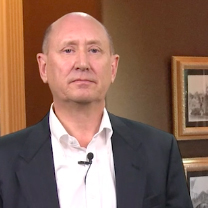 Who is Ian Elliott? Did you find this interview helpful? Please comment below. Search and read Ian’ s blogs. Visit his E&S Solutions website. You can also contact Ian by email or by phone at +1(615)478-3544
Who is Ian Elliott? Did you find this interview helpful? Please comment below. Search and read Ian’ s blogs. Visit his E&S Solutions website. You can also contact Ian by email or by phone at +1(615)478-3544
You can also watch this TV interview.

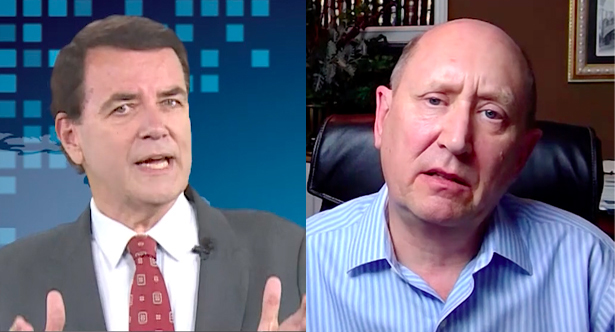





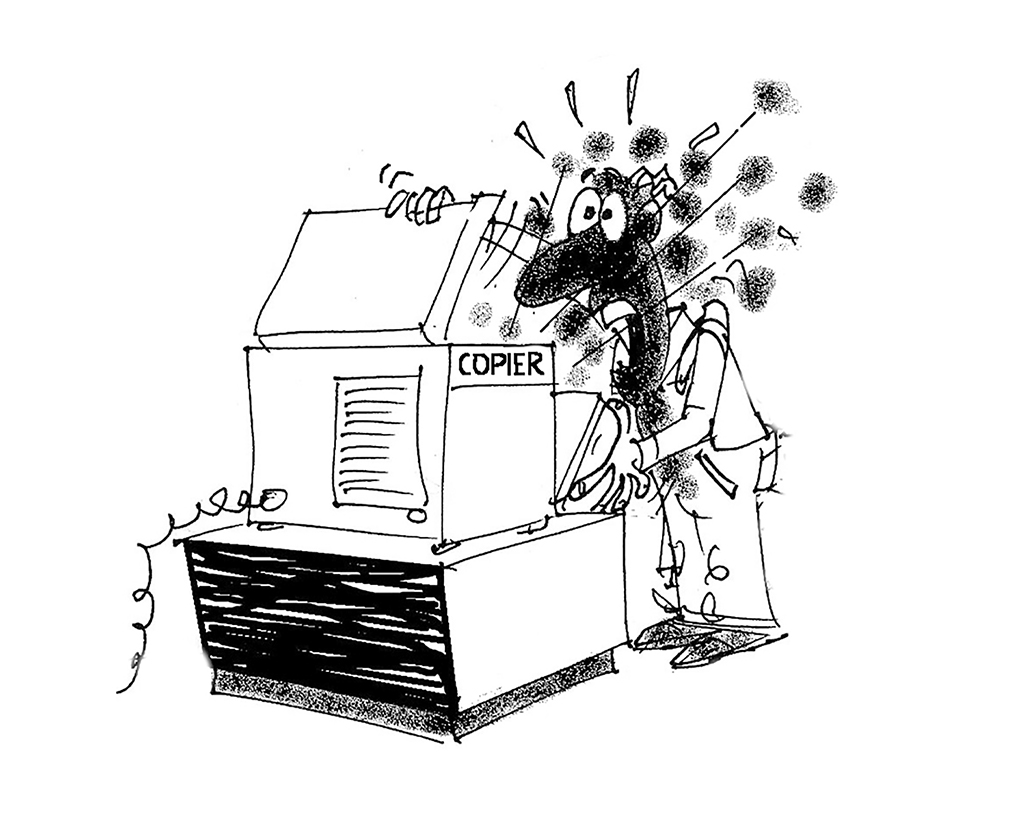



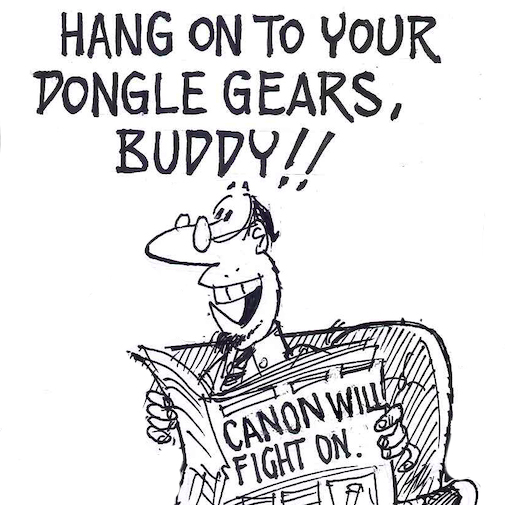
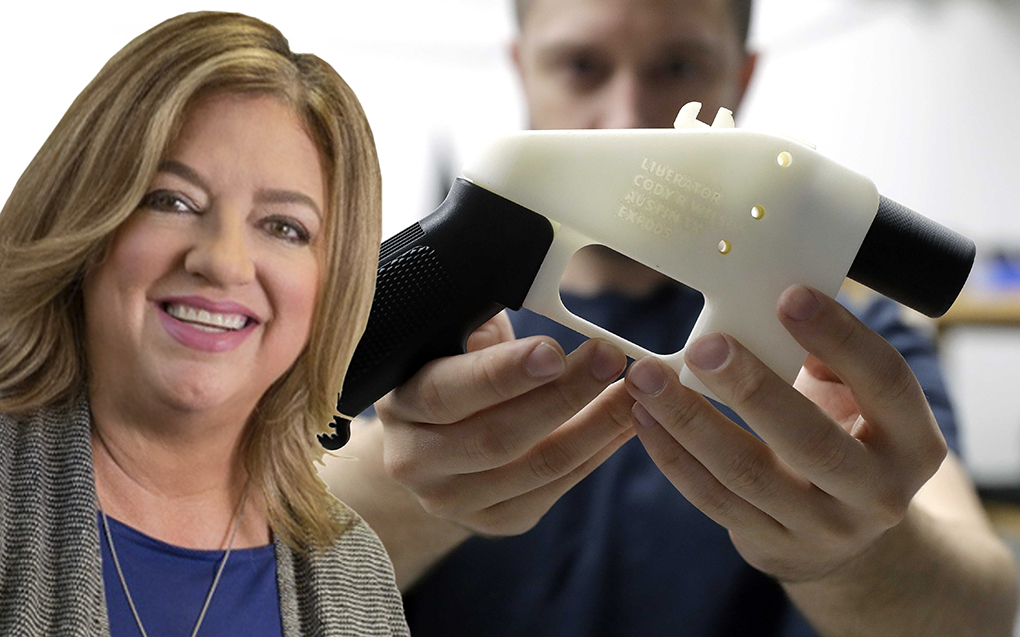
Leave a Comment
Want to join the discussion?Feel free to contribute!